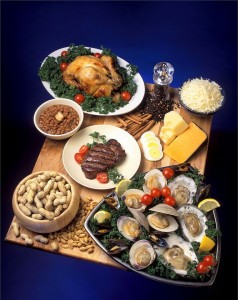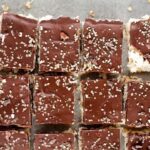The Importance of Zinc in Your Diet
 It would be appropriate to introduce the mineral nutrient zinc as the “mouse that roared” because while this mineral has a “micro” or small daily food requirement, it has a “macro” or major job to do in the healthy body.
It would be appropriate to introduce the mineral nutrient zinc as the “mouse that roared” because while this mineral has a “micro” or small daily food requirement, it has a “macro” or major job to do in the healthy body.
Zinc’s vital role as a mineral nutrient is second only to iron in terms of physiological function. How much demand our body makes on zinc also varies considerably with age, disease status, inherited biological weakness and one’s sex.
Zinc in your diet is of special importance to men as it is critical to the healthy development of the male reproductive system. In fact, male sex hormones cannot be produced in the absence of zinc and the prostate gland is particularly dependent on this mineral.
Zinc in your diet is of special importance to immune defence system.
Compared to the B-Group Vitamins, Vitamin C or the major mineral nutrients such as calcium or magnesium, zinc has a more dramatic impact on general health. Over 40 different enzyme reactions that take place every day in the healthy body are dependent on zinc including the regulation of insulin.
Deficiencies in zinc in your diet can mean poor growth and development from childhood through adolescence, poor wound healing, suppression of the immune defence system, impotence and prostate difficulties in males, lack of the sense of taste and smell, poor hair growth faster, acne skin conditions
unpleasant body odour, and low levels of zinc have been implicated in cases of anorexia nervosa (the so-called “slimmers disease”).
Numerous scientific studies have focused on zinc’s many faceted role in human health. It has been found, for example, that the body’s ability to repair tissue is improved 20% by keeping zinc levels optimal.
In cases of night blindness where treatment has been unresponsive to supplementation with Vitamin A (the usual vitamin given for this condition), adding zinc has helped improve the condition. Zinc has improved many a case of adolescent acne, especially in young males.
As we noted above, zinc in your diet is especially important to men’s health, equal in importance to the requirement women have for iron. Nutritional authorities regularly recommend zinc supplementation for men over 35 as a protective measure in prostate health.
For the population at large, zinc has a particularly significant function in stimulating the immune defence system. Notwithstanding zinc’s important role here, the effectiveness of taking zinc supplements to help build-up the immune system is not enhanced by over-dosage.
To increase one’s daily intake of zinc in your diet above 100 milligrams daily actually suppresses immune defences by lowering our white blood cell count. Again, intake requirements vary dramatically with the individual.
Average daily intake of 10-15 milligrams is generally acceptable; up to 30 mg if a particular identified deficiency presents itself. Taking supplemental zinc beyond this level needs the direction of qualified biochemical analysis and demonstrated need.
If such a deficiency situation is present and one is taking supplemental zinc, it is very important to take the zinc in the evening or on retiring and away from other supplements that may contain copper which is antagonistic to zinc absorption. University of New Jersey USA, Medical and Dentistry studies have shown that high levels of zinc in the body are implicated in immune-depressed states. Balance, then, is very critical here.
Unfortunately, while the value of zinc is known, the actual amounts we are likely to get in our food in questionable. Food processing, such as commercial grain milling that separates the bran and germ away from the grain, is the biggest destroyer of our natural food source of zinc.
The practice of separating grain starches away from their mineral-rich bran outer layers results in a zero level of zinc is most processed foods.
By perverse coincidence, however, a diet too heavily dependent on grain foods and low in protein can also depress zinc levels in the body owing to the blocking mechanism of “phytates” (natural acids that occur in grain foods in their raw state).
“Phytates” are safely neutralized by appropriate grain food combining with compatible proteins and thorough cooking. Foods with the greatest natural levels of zinc include; meat, egg yolks, oysters, herring, milk, pumpkin kernels and sunflower seeds and well prepared grain foods. Fruit and vegetables are almost zinc-free and so are not good zinc sources





Leave a Reply